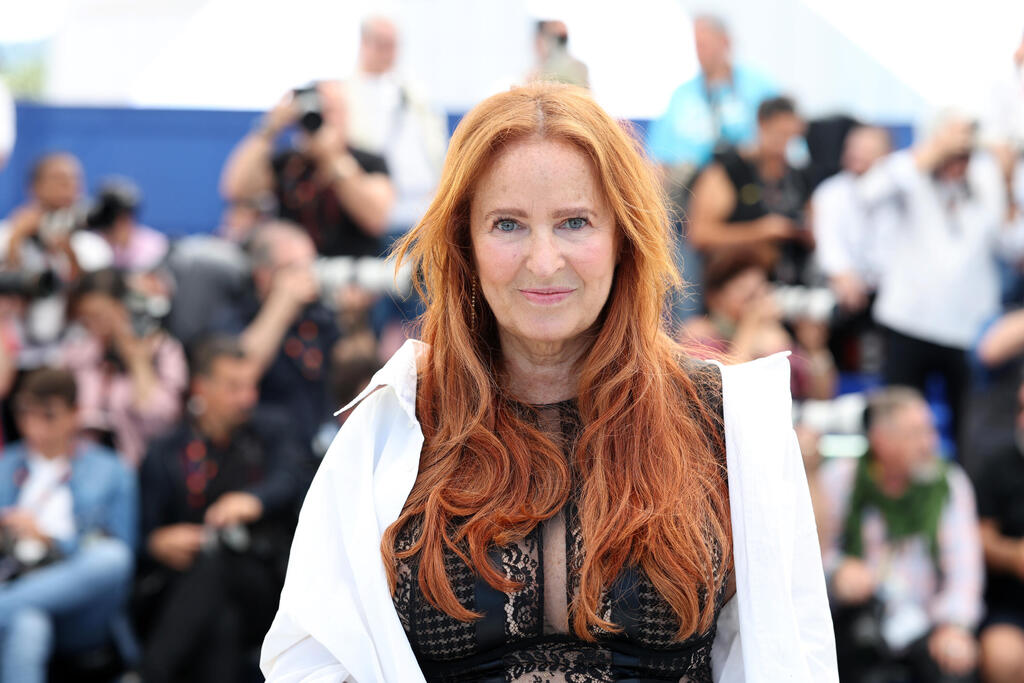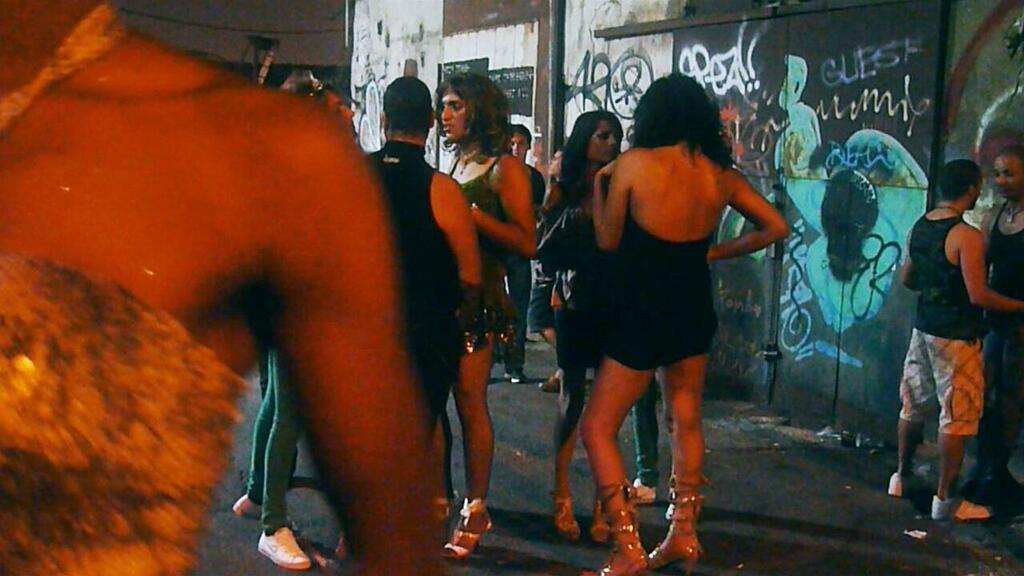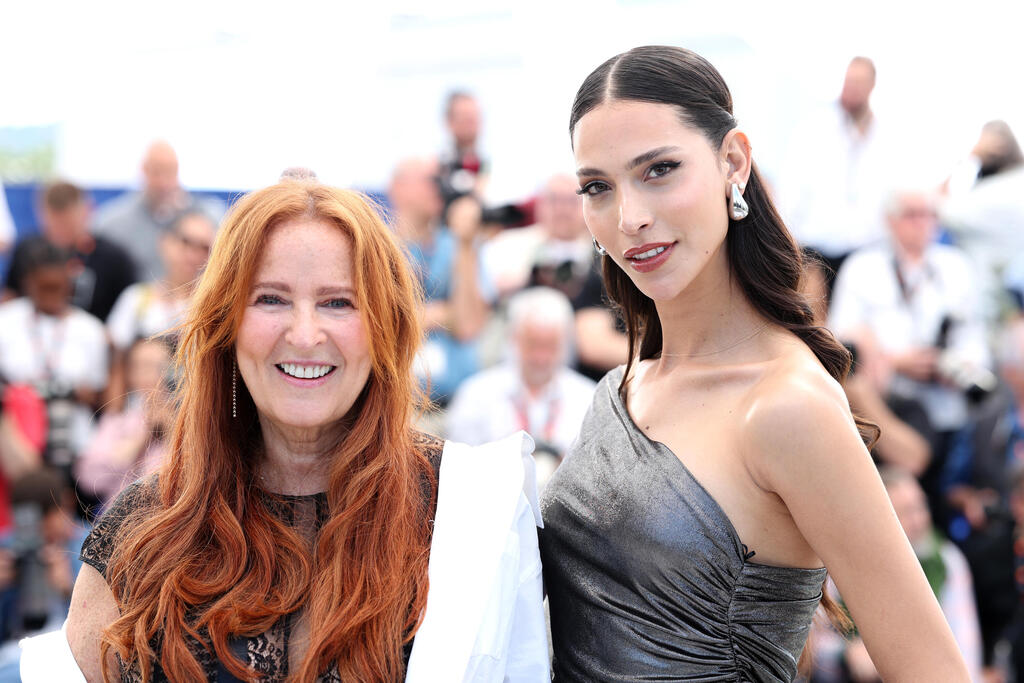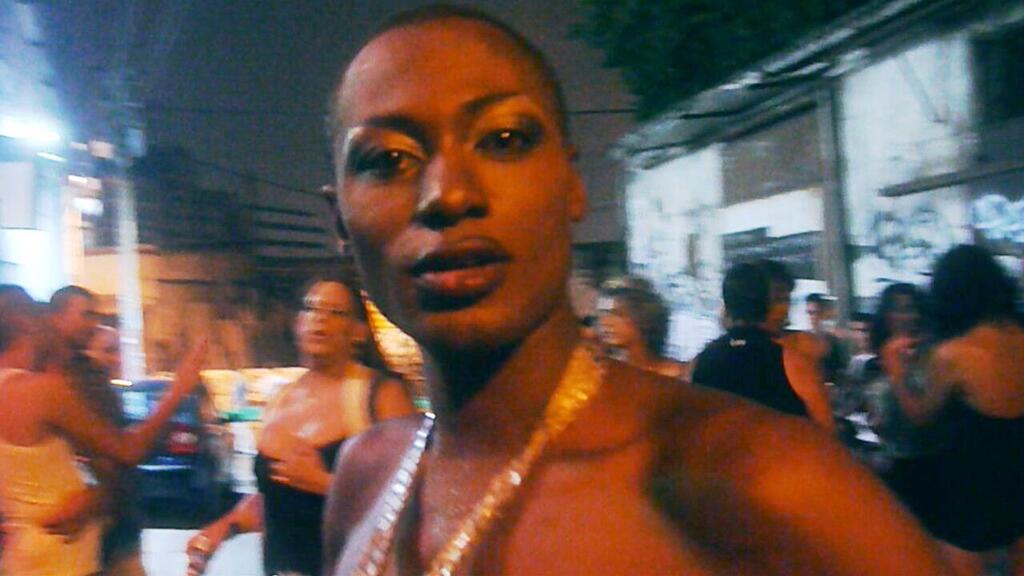Getting your Trinity Audio player ready...
The Belle from Gaza begins with a local myth, a tale akin to One Thousand and One Nights, whispered in the darkened streets of southern Tel Aviv as night falls and transgender women engaged in sex work emerge to ply their trade.
During her visits to Israel, French director Yolande Zauberman frequents these shadowy areas, driven by curiosity. With a listening ear and a camera, she captures their stories and personal experiences, leading her to the legend of the Belle from Gaza. This mythical figure is said to have fled her home, crossed the security fence and walked all the way to central Israel, where she found refuge.
The Belle from Gaza trailer
(Video: Pyramide Distribution)
Though this legendary character lends her name to the film, she never actually appears in it. Zauberman does not find her but, in her search, encounters Arab transgender women who share the harsh realities of their lives both at home and at work.
The Belle from Gaza (La Belle de Gaza) recently premiered at the Cannes Film Festival outside of competition, sparking a discussion that demands a deeper understanding beyond the usual political discourse, especially in light of the events of October 7 and the ongoing war in Gaza.
"Today nuance is subversive, nuance is radical," Zauberman tells Ynet. The problematic timing of the movie's release increases general curiosity about the film, but also anchors it in the inflammatory and violent news context between pro-Palestinians and pro-Israelis, anti-Zionists and anti-Arabs. In recent interviews, Zauberman admitted she reconsidered releasing the film following the events of October 7, which she described as a "nightmare."
The 69-year-old Jewish director has family in Israel and collaborated early in her career with Israeli director Amos Gitai. Although she has always expressed leftist views with a two-state solution in mind, some have accused her of creating Israeli propaganda of the "pink-washing" variety—cynically using the LGBTQ+ community to appear enlightened and inclusive. However, Zauberman insists that she merely sought to present personal perspectives to diversify the discourse and soften its rigid definitions between left and right, liberalism and conservatism, religion, nationalism, gender and sexual preferences. "[The Belle from Gaza] had everything inside her. Man-woman, Gaza-Tel Aviv, Muslim-Jew. She had everything," she explains.
However, throughout the film, as Danielle, Lauren and the Arab transgender women speak candidly and cautiously about their persecution in their communities of origin and familial rejection, they do not portray Palestinian society in a positive light.
One of them recounts how Muslim transgender women are thrown from rooftops in Gaza, while another testifies that during a visit to the West Bank, she and her friend were kidnapped, beaten bloody and dumped near an IDF checkpoint with the intent that soldiers would mistake them for terrorists and fire at them.
Conversely, they claim to receive good treatment from their Jewish clients (especially the ultra-Orthodox ones) and express gratitude for the sense of freedom Tel Aviv affords them, even as sex workers—a claim that aligns with the city's branding as open and tolerant. However, this reality does not align with the public sentiment of the LGBTQ+ community, especially its transgender segment.
“I don't give a s*** about [claims of] pink-washing. I'm not making a demonstration, it's not a movie meant to make Israel look this way or the other. I speak of reality,” Zauberman states and shares about one case in which she cut out a part of an interview that was suspiciously effusive toward Jews and seemed dishonest to her
“There was, for example, a girl that said ‘I hate them’ speaking about Israeli Jews, and she was so beautiful when she was saying that, I was really intrigued. I wanted to go and film her again because I could not understand that someone could be so beautiful saying ‘I hate them.’
“I began to film her and then she says, ‘I would never go out with an Israeli Jew because it's too complicated, but they did everything for me. They made an artist out of me’ and she began to talk in a way that I could not put in the movie because it was looking like a propaganda thing. So most of the time, I was putting a lower side of the appreciation.”
While watching the film, there is a sense that Tel Aviv is an oasis in the Middle East for Arab transgender women, who enjoy complete freedom and acceptance without threats on its streets. Zauberman acknowledges that the reality is not ideal, and in any case, the relatively tolerant environment is vastly different from other areas in Israel.
“When we asked [the interviewees] in Arabic ‘don’t you feel any racism’ they said yes, but more among Arabs than among Jews. It doesn't mean that there was no racism among Jews. It doesn't mean that there's no brutality, but the issue for me was ‘what do you feel? What do you consider being a woman?’
“It was more about women than about the Middle East. It was more about freedom than about the Middle East. It was about the Middle East because in the Middle East, families are so important, because faith is so important, and to be separated from your family is much more painful than here. In the Middle East, when you push the door, you never know if you will find big humanity or big inhumanity.”
It is impossible to escape the political aspects of the film, especially at the present time.
“It is very political. I don’t see too many movies that are not political. But it’s political through intimacy. It's not political through demonstration or through slogans. Of course, it's much easier being trans in Israel than in Syria, let alone Gaza, but it's not my point. It's more about women, it's more about freedom. I'm not making movies about a community, but from inside the community.
'I know that I can face a confrontation'
"The Belle of Gaza" fits seamlessly as a continuation of two other films created by Zauberman in Israel. She began her investigation into how nationalism and racism are imprinted on sexual preferences with 2011’s Would You Have Sex With an Arab?, and later directed M, which follows Menachem Lang, a former ultra-Orthodox Jew, on a personal journey dealing with the trauma of sexual abuse he experienced in his youth in Bnei Brak. During the filming of this movie, for which she won the French César Award in 2020, she was exposed to the world of transgender sex workers, a world that Menachem was fond of. It was also during this time that she first met Talleen Abu Hanna, known as Miss Trans Israel 2016, who has since become a local celebrity and participated in Big Brother.
Talleen also appears in The Belle from Gaza, and her conversations with Israela, who was born a religious man, bring forth reflections on faith and gender.
“Those movies are like Russian dolls. In one movie, you find the other one, then you find the other one,” explains Zauberman, recalling how the story of the Belle from Gaza came to her during the filming of M in Tel Aviv’s Kiryat Hamelacha neighborhood, amid the art spaces and dark street corners. She noticed three Arab transgender women who had fled their families, and they reminded her of the character of the Belle from Gaza.
“She told me that one of them came on foot from Gaza. That seemed to me nearly impossible. Because getting out of Gaza is a whole story in and of itself. So I really wanted to know how she felt. That was what I was searching for. I let things happen in life in the same way."
Still, there must be a reason these stories find you, and that you take the time to tell them.
“When I was small, my dream was to know what people were feeling, just to go one second inside their body, just to feel what they were feeling. I'm obsessed with stories about borders and enemies. For me, enemies are like couples. Enemies know each other in a way that neighbors and friends don’t know. It’s very different.”
Now that the film is being released at this time, caught between Palestinians and Israelis, do you have any concerns?
"When I did a movie in South Africa, I was totally underground because [the ruling African National Congress party] wanted to help me but only if I updated them on what I was doing.
In [M, filmed in the ultra-Orthodox city of Bnei Brak], the head of the moral police wanted to meet me, and he said ‘we can protect you but I want to see the materials. It told him, ‘I’ll never show them to you.’ He asked me ‘how do I know you’re not going to do something bad’ and I asked him the same thing. He respected me and let me do whatever I wanted.
“I’m not so courageous. I know that I can face a confrontation but I don’t fall into that trap. In the meantime, apart from a few negative reactions, most critics have said that the film is important and have expressed their appreciation for the different perspective it provides on the situation in the Middle East."









